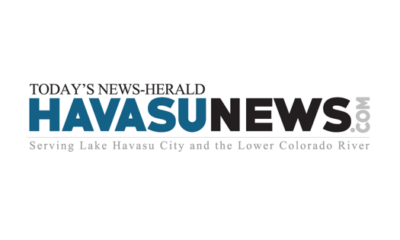arizona
Urban Native Voter Engagement: Cultivating Community through Cultural Connection

As the countdown to the election intensifies, Arizona’s voting advocates, candidates, and community organizers are ramping up efforts to mobilize voters across the state. With just two weeks remaining, strategies range from canvassing neighborhoods and setting up phone chains to organizing rallies aimed at voter education.
However, turning out Indigenous voters poses unique challenges, particularly in urban areas where identifiable Indigenous neighborhoods do not exist. Janeen Comenote, executive director of the National Urban Indian Family Coalition, noted, “Most other groups in cities have neighborhoods that they live in, and urban natives tend to literally be all over the city.” This scattering, a consequence of the Indian Relocation Act of 1956, complicates organizations’ attempts to connect with Native populations in metropolitan areas.
“When you think about Native people living outside their ancestral homelands, we’re at about 76%,” said Jolyana Begay-Kroupa, CEO of the Phoenix Indian Center. “That number continues to climb as more relatives move to major cities.” Comenote emphasized that this relocation policy was designed to disperse Indigenous communities, which presents a significant hurdle for outreach efforts.
Engaging Urban Native Voters
Connecting with urban Indigenous voters necessitates the involvement of organizations that have fostered long-standing relationships within these communities. These organizations, including the Phoenix Indian Center, promote cultural engagement in their voting outreach strategies. Comenote remarked that cultural events often serve as the backdrop for voting initiatives, helping to bridge gaps and foster trust among potential voters.
The Phoenix Indian Center, a vital hub for Indigenous residents for over 75 years, plays a critical role in civic engagement. June Shorthair, the center’s civic engagement specialist, explained that by utilizing familiar community settings for their efforts, they aim to create an environment where urban Natives feel at ease participating in the electoral process.
The center recently hosted a town hall meeting during the Indigenous Peoples Day Fest in downtown Phoenix, inviting local candidates and highlighting the importance of voter turnout. “In the Native community, we don’t look at party; we look at issues,” Shorthair stated, reinforcing the focus on relevant topics for Indigenous voters.
Arizona’s Indigenous population plays a crucial role in elections, comprising about 6% of the state’s overall population. Approximately 300,000 voting-age residents identify as Native, with more than 176,000 located in Maricopa County alone. This demographic significance is especially pertinent in close elections, where every vote counts. Arizona Secretary of State Adrian Fontes affirmed that Native American voters are dispersed throughout the state, underscoring their potential impact in both urban and rural areas.
Engagement Efforts and Future Projections
During a recent get-out-the-vote event on the Gila River Indian Community, Governor Katie Hobbs emphasized the impact of Native voters, highlighting their record turnout in 2020. “You have the power to be that deciding factor once again this November, but only if you show up and make your voices heard,” she remarked. Notably, Arizona’s elections are often characterized by narrow margins, as demonstrated in the previous gubernatorial race, decided by just 280 votes.
Tribal leaders, including Gila River Indian Community Governor Stephen Roe Lewis, have focused on outreach initiatives targeting urban tribal members. The community’s urban members association works to equip these voters with essential information, ensuring accountability among leaders. “We are a collective entity,” Lewis stated, emphasizing the unity and importance of the Indigenous vote.
At their recent rally, the Gila River Indian Community distributed a comprehensive 2024 Voter Education Guide, detailing electoral processes, candidate positions, and helpful voting information. Lewis conveyed that their mission is not to dictate voter choice but to provide the necessary context for informed decisions. “No matter who you vote for, please, make sure you make a plan to vote,” he urged attendees.
In summary, as the election approaches, the focus on engaging Indigenous voters in Arizona highlights the intersection of cultural identity and civic participation. With their unique struggles and aspirations, urban Indigenous communities continue to assert their voices in the electoral process, a significant endeavor reflecting their vested interest in shaping their future.


















